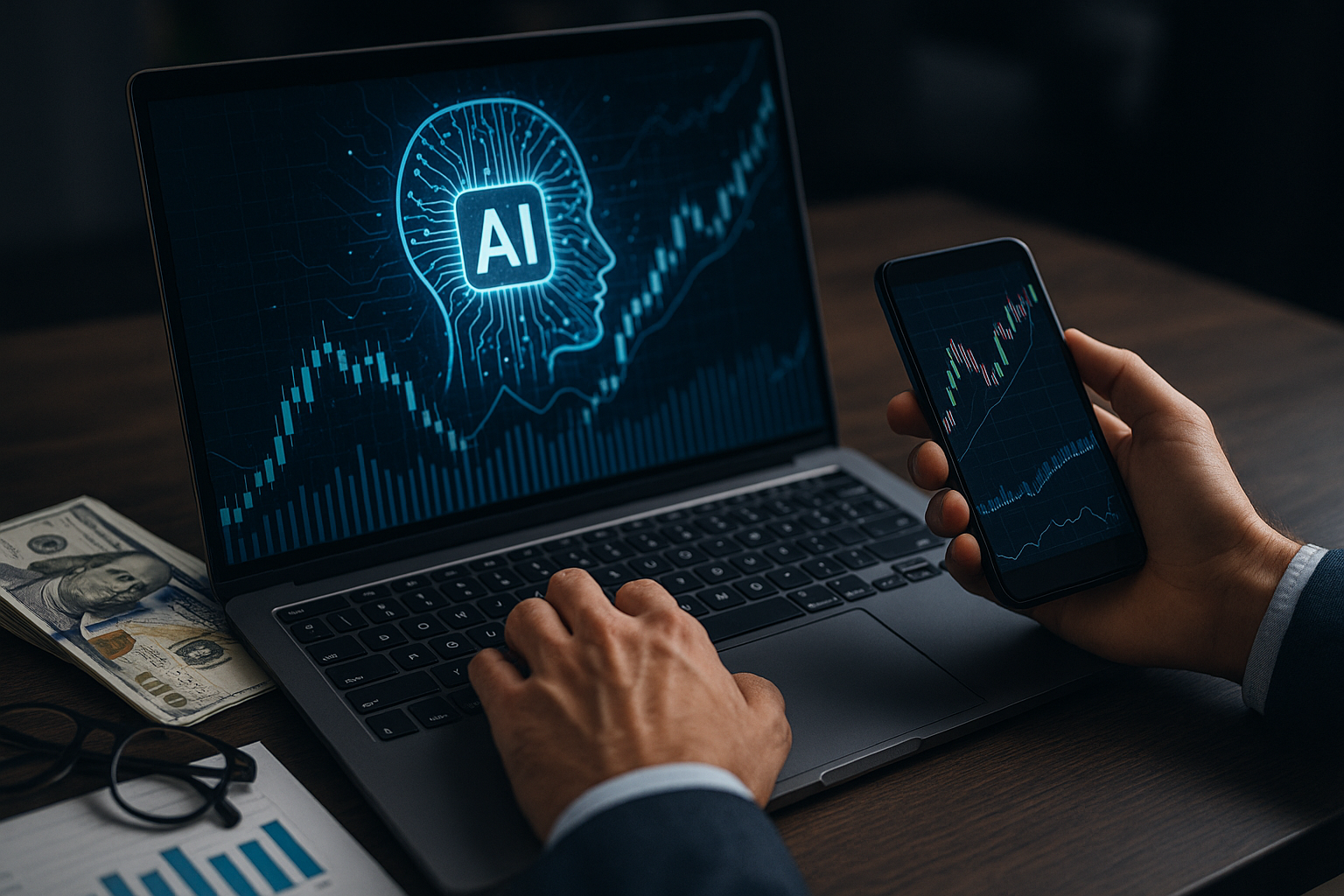The growth in AI day trading tools and platforms explained
Artificial Intelligence (AI) is revolutionizing the world of day trading, offering sophisticated tools and platforms that promise to enhance trading strategies and potentially boost profits. This article explores the rise of AI in day trading, its advantages, and the tools shaping this technological shift.

What is AI day trading?
AI day trading refers to the use of artificial intelligence algorithms and machine learning techniques to analyze market data, identify patterns, and execute trades automatically. These systems can process vast amounts of information in real-time, making split-second decisions based on predefined parameters and historical data analysis. AI trading platforms often incorporate natural language processing to interpret news and social media sentiment, further informing trading decisions.
Why is AI day trading becoming popular?
The growing popularity of AI day trading can be attributed to several factors. Firstly, the increasing complexity and speed of financial markets make it challenging for human traders to keep up with rapid market changes. AI systems can analyze multiple markets simultaneously, identifying opportunities that might be missed by human traders. Additionally, the availability of big data and advanced computing power has made AI trading more accessible and effective.
Another reason for AI trading’s popularity is its potential to eliminate emotional decision-making. Human traders often struggle with psychological biases that can lead to poor trading choices. AI systems, on the other hand, strictly adhere to predefined rules and strategies, potentially leading to more consistent and rational trading decisions.
What are the advantages of AI day trading?
AI day trading offers several significant advantages over traditional trading methods:
-
Speed and efficiency: AI systems can analyze market data and execute trades in milliseconds, far faster than human traders.
-
24/7 market monitoring: AI algorithms can continuously monitor markets across different time zones, never missing potential opportunities.
-
Reduced human error: By eliminating emotional decision-making and fatigue, AI trading can potentially reduce costly mistakes.
-
Pattern recognition: AI systems excel at identifying complex market patterns and correlations that might be invisible to human traders.
-
Backtesting capabilities: AI platforms can rapidly test trading strategies against historical data, helping to refine and optimize trading approaches.
What are some popular AI day trading tools and platforms?
Several AI-powered trading tools and platforms have emerged in recent years, catering to both retail and institutional investors. Here are some notable examples:
-
Tickeron: An AI-powered trading platform that offers pattern recognition, backtesting, and real-time alerts.
-
Trade Ideas: Uses AI to scan markets for trading opportunities and provides actionable insights.
-
Kavout: Offers AI-driven stock picking and portfolio management tools.
-
Alpaca: Provides APIs for algorithmic trading and AI-powered market analysis.
-
EquBot: Uses IBM Watson’s AI capabilities to analyze and select stocks for ETFs.
How are AI day trading tools changing the investment landscape?
AI day trading tools are transforming the investment landscape by democratizing access to sophisticated trading strategies. Previously, only large institutional investors had the resources to develop and implement complex algorithmic trading systems. Now, retail investors can leverage AI-powered platforms to compete on a more level playing field.
These tools are also changing the skill set required for successful trading. While traditional trading relied heavily on intuition and experience, AI trading emphasizes data analysis and programming skills. This shift is leading to a new breed of traders who combine financial knowledge with technological expertise.
What are the costs and considerations of AI day trading platforms?
When considering AI day trading platforms, it’s essential to understand the associated costs and features. Here’s a comparison of some popular AI trading platforms:
| Platform | Provider | Key Features | Cost Estimation |
|---|---|---|---|
| Tickeron | Tickeron Inc. | Pattern recognition, backtesting, real-time alerts | $30-$160/month |
| Trade Ideas | Trade Ideas, LLC | AI-powered market scanning, real-time streaming | $84-$228/month |
| Kavout | Kavout | AI stock picking, portfolio management | Custom pricing |
| Alpaca | Alpaca Markets | API for algorithmic trading, paper trading | Free for basic, premium plans available |
| EquBot | EquBot LLC | AI-powered ETF management | Varies based on ETF investment |
Prices, rates, or cost estimates mentioned in this article are based on the latest available information but may change over time. Independent research is advised before making financial decisions.
Conclusion
The growth in AI day trading tools and platforms represents a significant shift in the financial markets. As these technologies continue to evolve, they promise to offer increasingly sophisticated and accessible trading solutions. However, it’s crucial for traders to understand that while AI can enhance trading strategies, it doesn’t guarantee profits. Proper education, risk management, and a thorough understanding of the chosen AI platform remain essential for successful trading.
The shared information of this article is up-to-date as of the publishing date. For more up-to-date information, please conduct your own research.




